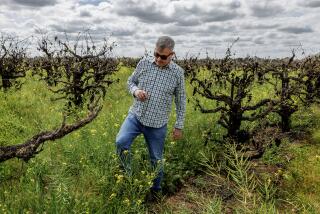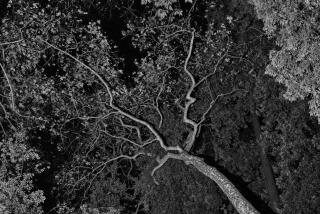Fir Shortage
- Share via
For a little while it looked like Kenny Twomey was going to have a Christmas tree lot with no Christmas trees. The Fillmore man had managed to get the typical Douglas firs and Monterey pines, but without any noble pines--the sturdy Christmas classic--who was going to buy anything?
“We almost had to pack the tent up,” Twomey said of his small Thousand Oaks lot, St. Nick’s. “But, at the last minute, my partner came through.”
This year, a tall, full noble fir could turn out to be the best Christmas present some county families get--and a treasure denied to some small lot owners.
There are fewer of the classic trees to go around, and that, tree dealers say, has left them scrambling to fill their lots--and has nudged prices up at some spots by 25%. As a result, some retailers say they’re seeing earlier and stronger interest, as buyers come early to get the pick of a small litter.
“We’ve been having trouble getting trees,” said Ed Oden, manager of Bennett’s Best in Thousand Oaks. “That means a lot of people are buying early. They’ve heard people are short of them.”
The sturdy, layered noble firs have the classic tapered look, and are the vogue for in-the-know tree buyers--a trend that growers in Oregon and Washington didn’t foresee a decade ago when, after an earlier glut, they decided to plant fewer.
“They’re cutting them as fast as they’re growing them,” said Dave Lidren, owner of Big Wave Dave’s Christmas Trees in Ventura, where a 6-foot noble fir sells for $64, up about $8 from last year. Lidren said 60% of his sales are of noble firs.
That can be good news for many of the bigger farms and lots--which have more pull with growers in the Northwest--and a pity for the mom-and-pop tree stands, which dealers say are not popping up on street corners with the usual frequency.
“Enough places have closed gradually over the years that [customers] are rushing over here,” said Marilyn Cameron of Christmas Ranch Tree Farms in Thousand Oaks. “Some of the lots I used to see in locations year after year just aren’t there any more.”
The Christmas tree industry is a competitive business, dominated by farms and larger perennial retailers. The come-and-go tree lots that dot neighborhood corners--often run by small businesses or nonprofit organizations--are more vulnerable to market forces. Those forces--such as tree shortages and disappearing or overpriced lots--can put them out of business with little warning.
The Thousand Oaks YMCA, for instance, is losing its Camarillo space after this year, and will have to hunt for a spot to sell from next year.
And when it does, it will have to deal with scarcity issues affecting a Southern California classic--not the regal noble fir, but the humbler, home-grown Monterey pine.
The typical Southern California you-cut trees are stalked by a fungus called pitch canker. And while most growers say their trees can remain healthy if carefully tracked, some admit they are concerned.
“If the farm gets infested, it seems like overnight it ruins your farm,” said Thursel Roatcap, who has been running the Santa Paula Christmas Tree Farm with her husband Ralph for 30 years. “We’re hoping for a cure.”
For now, the Roatcap farm is safe, though some of their trees this year will be shorter, after being battered by floods. They have noble firs--at only about $2 more than last year--and their fields of Monterey pines are ready to be cut. But, Thursel Roatcap cautions, customers shouldn’t get too invested in getting the ideal tree.
“Everybody wants a perfect tree,” she said. “No tree is perfect. But, they’re still beautiful.”
More to Read
Inside the business of entertainment
The Wide Shot brings you news, analysis and insights on everything from streaming wars to production — and what it all means for the future.
You may occasionally receive promotional content from the Los Angeles Times.










